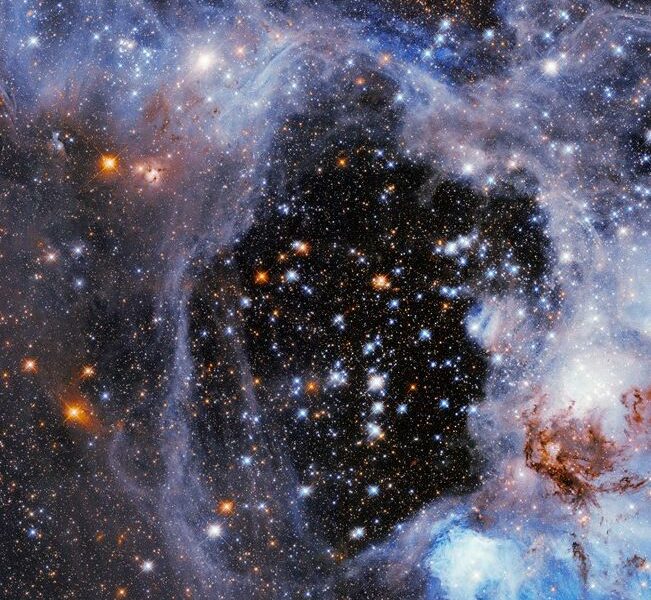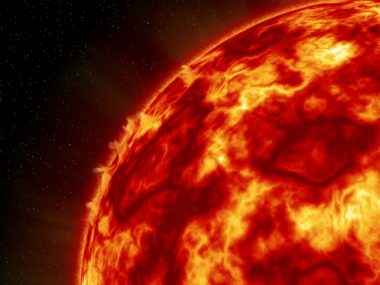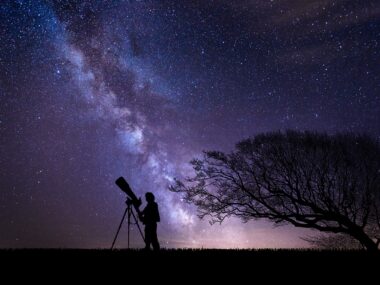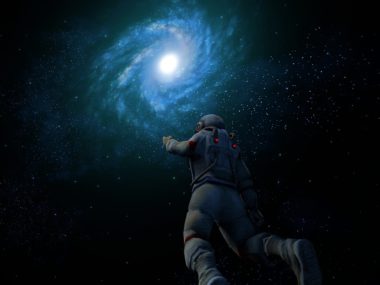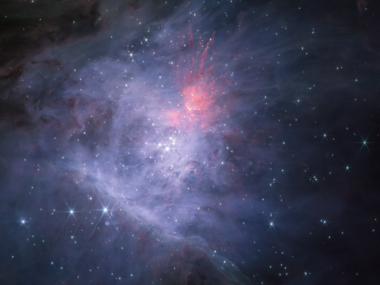Cosmology is, simply put, the study of the universe. You may ask: How exactly does that differ from astronomy? You can think of it this way: Astronomy is the study of the stars, sun, moon, galaxies—in short, the study of things inside the universe. Cosmology is the study of the universe itself.
The views expressed in this article reflect those of the author mentioned, and not necessarily those of New Creation.
The word cosmology comes from two Greek words: cosmos, which means “order” or “world”, and logos, which means law. Thus, in cosmology, we study the laws that determine how the universe behaves, and by extension, the way the universe operates in the present. Cosmology tries to answer questions such as: What is the shape of the universe? Is the universe infinite or finite in extent? Is there a large-scale structure to the universe?
The goal of the cosmologist is to build a model of the universe, or a way of understanding how the universe works. This model is a cosmological model, which is often shortened to simply a “cosmology.” It’s a little confusing, admittedly—cosmology is the study of the universe, and this study results in models of the universe which are themselves called cosmologies. That aside, a few examples of some of the major cosmologies will help make this more clear.
Ancient Near Eastern Cosmologies
Sometimes you’ll hear the claim that in the Ancient Near East, everyone thought the world was flat; by extension, the claim goes, the ancient Hebrews who were responsible for writing the Old Testament believed in a flat earth. The full story is more complicated than that, because not every nation in the Ancient Near East believed the exact same things about the universe. Nonetheless, the concept, deriving from ancient times, of a flat earth over which hangs the vault of the heavens, is an example of a cosmology, or a theory of what the universe looks like.
Steady-State Cosmology
The steady-state universe was the dominant cosmological model before the Big Bang. It grew from ideas inherited from ancient Greece. A crucial tenet of the steady-state cosmology was that they believed the universe was eternal; no beginning or end. Of course, for the universe to be eternal meant that there could be no large-scale trends in the history of the universe; to last forever, the universe needs to be in a state of equilibrium. Hence the name steady-state.
Big Bang Cosmology
The Big Bang cosmology is a fairly recent development in the history of humanity’s understanding of the universe. It began when Hubble decisively demonstrated that the universe is expanding. Recall that an eternal universe can’t have large-scale trends over time; the universe can’t be in a state of eternal expansion. Thus, the discovery that the universe is expanding was a serious blow to the steady-state cosmology. Cosmologists had to grapple with the reality that the universe, in fact, had a beginning. This is awkward for the materialist, as a beginning implies an external Agent who caused the universe to come into existence. The Big Bang cosmology is the response to this awkward situation, which is an attempt to explain the origin of the universe without a Creator.
Recent Creation Cosmology
Alas, there isn’t much to put here. Young-earth creationists have yet to develop a fully fledged cosmology, or model of understanding the universe within a Biblical perspective.
That being said, there are a few young earth creationist cosmologies in the fledgling stages. Creation astronomers sometimes playfully complain that the Bible doesn’t give us a lot of detail about the creation of the universe: outside of a few verses (in Genesis 1:14–16), there isn’t much said. This does, however, give creation astronomers a good amount of latitude in developing cosmological models. Creation cosmology at this point has mostly dealt with answering questions such as: How can light from distant galaxies reach Earth within 10 thousand years? Or, what is the nature of “the waters above” in Genesis 1:7?
In summary, cosmology is the branch of science that deals with the nature and structure of the universe. A cosmological model, or cosmology, is a particular theory of the nature and structure of the universe. While the Bible doesn’t give us enough information to define an entire cosmology, it gives us constraints within which we, as young earth creationists, can work to better understand God’s creation.

